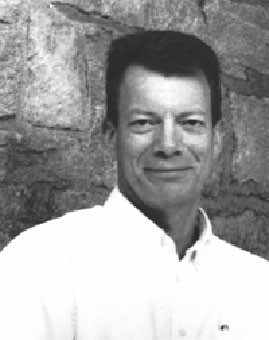Fenton Johnson, a creative writing associate professor at the UA, was recently chosen as one of the 189 Guggenheim fellowship winners out of nearly 2,800 applicants. This is no small feat; past Guggenheim fellows have included Aaron Copland, Langston Hughes, Vladimir Nabokov and Ansel Adams.
Johnson has definitely shown his past achievement with his four books and various literary awards. As part of the award, Johnson will receive funding for his research and writing when he takes sabbatical next year. His fellowship is to support the two current works he is writing now – one is a novel and the other a nonfiction book.
His current novel is composed of three characters: a Trappist monk, an exile woman doctor who just immigrated to the United States from Calcutta and a renegade Vietnam veteran marijuana grower.
“”They are all outsiders in some fashion or another,”” Johnson said. “”All three of these characters are variations of me in some way or another.””
The basis for these characters was initially founded on Johnson’s own life experiences. In high school when he was growing up in rural Kentucky, he met a Pakistani female doctor.
“”In my poor rural town in Kentucky, we didn’t have a doctor and finally the public health service sent us a Pakistani woman doctor,”” Johnson said. “”Even then I thought, wow, what a strange and remarkable experience to be a Muslim woman doctor coming to a poor Roman Catholic Kentucky hill town. I was fascinated by that.””
The renegade marijuana grower stemmed from families of marijuana growers in Kentucky Johnson interviewed while he was on staff at the New York Times Magazine in 1988. He kept the notes from the stories these families told him.
“”They were not criminals, except that the law made them criminals,”” Johnson said. “”They turned to growing marijuana to keep their farms and stay on the farm. They were great storytellers and fascinating people. I thought then, there was a novel in there somewhere and some of the dialogue in this novel is lifted directly to the interview from 1988.””
In his other book, which is more research-based and is titled “”Desire in Solitude,”” Johnson will look at the relationship between solitude and artistic expression with several artists and writers. A majority of the funds Johnson will receive will go toward his travel expenses when he returns to Calcutta, India to visit the home and libraries of Rabindranath Tagore, the first person of color to win the Nobel Prize in 1916.
“”He (Tagori) was married and had children, but his wife and several of his children died when he was in his 30s and he lived the rest of his life alone,”” Johnson said. “”As far as we know he never had another significant relationship.””
The idea was sparked when this idea of solitude linked to creative expression came about in Johnson’s own life.
“”I had a partner who died of AIDS in 1990 and much to my surprise I have livedalone ever since then,”” Johnson said. “”While I’ve dated here and there I haven’t had a really substantial enduring relationship since then. I have had three books I’ve published since that time. At some point I became interested in some sort of difference between people who lead somewhat more conventional personal lives, lifelong marriages versus those people that never married.””
Johnson also says that this “”coupled society”” has taken over as the dominant ideology.
“”We live in a society where coupling, two people being coupled, is considered not just the norm, but anybody who leads a life other than that is looked at with suspicion,”” Johnson said. “”Yet that is a relatively new model for human behavior.””
Turns out, some of the most significant historical figures have lived their lives without a mate.
“”The people who are prophets in culture often are people who are alone,”” Johnson said. “”Look at Gandhi. Or Jesus. I’m interested in looking at this phenomena of solitude related to creative expression.””
Johnson says he is looking forward to the traveling, researching and writing he will take part in over the next year.
“”It’s a great calling card; it’s a sign of achievement,”” Johnson said. “”There should be more of them. Most of my colleagues have equally impressive careers. I got lucky. It’s an internationally known fellowship; in that sense it will be very helpful.””
Johnson hopes his award will show that the creative writing program at the UA is something that the university should value.
“”I think the UA has superb programs in the humanities – one of the best is the creative writing program that has been forgotten in the past few years,”” Johnson said. “”Any attention I can draw to the arts and humanities here is definitely good.””









